Abby Kelley Foster inducted into the National Abolition Hall of Fame and Museum
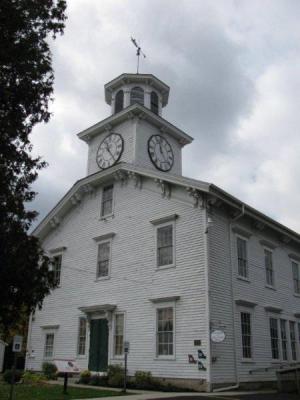
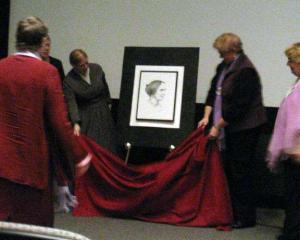
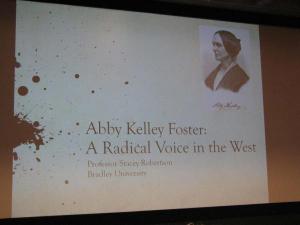
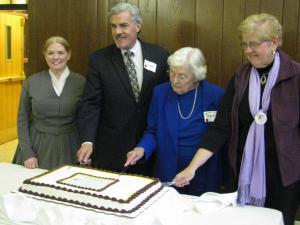
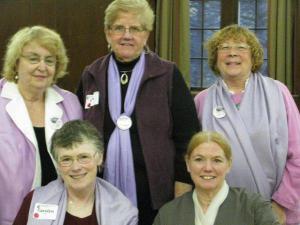
The dual inductions of Abby Kelley Foster into the National Women’s Hall of Fame (October 2, 2011) and the National Abolition Hall of Fame and Museum (October 22, 2011) underscore the two driving moral causes that motivated Abby’s life: equality between the sexes and the abolition of slavery – with full racial equality.
It was the combination of these issues, gender equality and racial equality, that inspired me, and many others, to join in creating the Worcester Women’s History Project in 1994, with the goal of commemorating, “in the year 2000,” the 150th anniversary of the very first National Woman’s Rights Convention, which was held in Worcester in October, 1850. At that first national convention, a suffrage resolution was passed, declaring that banners should proclaim “equality before the law, without distinction of sex or color.” These words became a motto for the WWHP.
A second resolution was a powerful inspiration for all the hard work that lay ahead as we planned for the 150th anniversary commemoration of the only national woman’s rights convention that called for women’s rights without distinction of color.
Resolved, That the cause we are met to advocate, — the claim for woman of all her natural and civil rights, — bids us remember the million and a half of slave women at the South, the most grossly wronged and foully outraged of all women; and in every effort for an improvement in our civilization, we will bear in our heart of hearts the memory of the trampled womanhood of the plantation, and omit no effort to raise it to a share in the rights we claim for ourselves.
For me, going to Peterboro, New York, was a poignant finale to our work begun in 1994 and a fitting beginning of renewed commitment; it was like coming full-circle. In the 1990s, I, along with everyone else, had a lot to learn about Abby Kelley Foster, the abolitionist movement, and the woman’s rights movement. The more I learned, the more I was drawn to Abby, a woman who viewed the liberation of slave women (and men) as having greater moral urgency than did her own and her daughter’s moral claim to full equality with men. Now here I was, going with a small group of WWHP members to Peterboro, New York, to help induct Abby into the National Abolition Hall of Fame and Museum (NAHOF). She had just been inducted into the National Women’s Hall of Fame, after more than a decade of advocacy by WWHP members. A white abolitionist in the women’s hall of fame! And now, a staunch women’s rights advocate in the abolition hall of fame!
On Friday, October 21, 2011, Doreen Velnich drove Fran Langille and me, and once we got through Albany, we drove on a state highway over hills, into valleys, through little towns, and past small farms — a landscape Abby would have travelled many times. We connected with Mary and Bruce Plummer at our motel in Oneida, then drove into Hamilton for dinner and to Colgate University’s planetarium, where we sat surrounded by a film about the Mayan people’s temples and astrological predictions.
On induction day, we met up with Tom and Lynne McKenney Lydick at Colgate University. A large exhibit on anti-slavery history filled the hall where the NAHOF hosted a morning reception. It gave me chills to realize that everybody there was committed to preserving the memory of the inductees and the thousands of unnamed people who dedicated and sacrificed their lives to end the heinous atrocity of slavery.
“Dot Willsey and the staff of NAHOF were so gracious and welcoming to us.” said WWHP then-president Fran Langille. “I bought an Abby pin to wear. I think Doreen bought enough Abby cards to give to everyone who attended our WWHP annual meeting! And she wiped out the NAHOF supply of Abby pins!”
Throughout the day, several scholars spoke about key people or issues in the abolitionist movement. We were delighted to meet historian Stacey Robertson — another Abby fan — who spoke about the huge influence Abby had in the “western” states of Ohio, Indiana, and Michigan. Until hearing Stacey’s lecture, I had no idea just how successful Abby had been in organizing so many women, who themselves became lecturers and organizers. Abby was, truly, the most effective organizer and fundraiser for the American Anti-Slavery Society.
The induction ceremony took place after dinner. For each of the three people being inducted (Abby Kelley Foster, Jermain Wesley Loguen, and George Gavin Ritchie), the format included a presentation to represent the life and contributions of the nominee followed by formal nominations; at the end of the program, nominators stood by sheet-draped frames and then ceremoniously unveiled black and white portraits of each inductee.
Abby was first on the agenda, so the evening began with one of the best performances I have ever seen of Lynne portraying Abby in Yours for Humanity —Abby . [Yours for Humanity —Abby was written for the Worcester Women’s History Project by Carolyn Howe and Karen Board Moran.] The audience was clearly moved by the performance. I was proud to make the five-minute formal induction nomination. In my remarks, I turned to Abby (a.k.a. Lynne); these are some of the words I spoke to her:
Abby — we are humbled to be here in your presence, and to have you witness one of our deepest missions: to have your memory, and your legacy, given the recognitionand place in history that you deserve.
You deserve this honor, Abby. But we here — and the men, women, and children across this nation — also deserve to have your memory and legacy preserved. As a young teenager passionate about the Civil Rights Movement, I needed you, Abby! I needed to know that you, a white woman, who worked against slavery until you dropped from sickness and exhaustion — you were also deeply committed to full racial equality. I, and so many others, needed the role model of Abby Kelley, and do we need you now, for as you said, nothing is finished while so much is left to be done.
I think I speak for many women…when I say that we needed you in our twenties, when, like you, we were struggling to find, and trust, and know the power of our women’s voices…. You simply claimed that you were equal to men, and claimed your right to speak in public venues about the evils of slavery.…
Your life challenges those of us "...who share your passion for equality and justice to use your life's example for strength” to carry on your legacy – to do something, whatever our life circumstances allow, to help create a more
equitable, just, and sorely needed compassionate society.And so, Abby, …we come here from the city you made your home, Worcester, Massachusetts, to nominate you for induction into the National Abolition Hall of Fame and Museum. We are forever — yours, for humanity.

